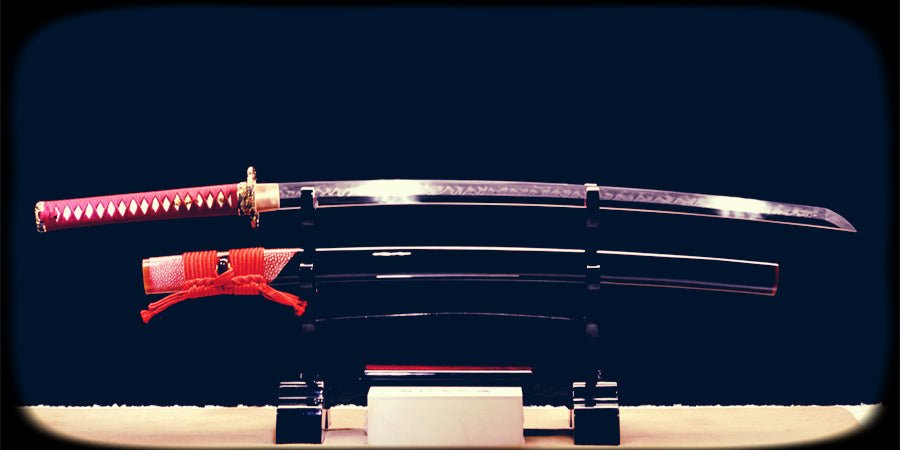How to Ensure the Authenticity and Value of Japanese Swords?
When it comes to the authenticity and value of Japanese swords (Nihontō, 日本刀), having the right certification is crucial. Here’s a detailed look at the primary types of certificates for Japanese swords and what they signify.
NBTHK Certificates
The Nihon Bijutsu Token Hozon Kyokai (日本美術刀剣保存協会), or the Society for the Preservation of Japanese Art Swords, is one of the most respected organizations for Japanese sword certification. Established in 1948, NBTHK aims to preserve the artistry and history of Japanese swords through meticulous evaluation and certification. The primary NBTHK certificates include:
- Hozon Token (保存刀剣): This certificate indicates that the sword is worthy of preservation and meets the basic standards of historical and artistic significance.
- Tokubetsu Hozon Token (特別保存刀剣): This higher-level certificate is granted to swords that exhibit exceptional quality and importance.
- Juyo Token (重要刀剣): Reserved for swords of significant historical importance and superior craftsmanship, this certification greatly enhances a sword’s value.
- Tokubetsu Juyo Token (特別重要刀剣): The highest honor, given to swords that are of paramount importance and rarity. Only a small number of swords receive this certification, making them highly valuable.
The process for obtaining these certificates involves a detailed examination of the sword’s craftsmanship, historical significance, and condition. Swords that pass the stringent criteria of the NBTHK are issued with a certificate that includes detailed information about the blade, such as its length, curvature, and the smith who created it.
NTHK Certificates
The Nihon Token Hozon Kai (日本刀剣保存会), or the Japanese Sword Preservation Society, is another esteemed body that provides authentication. Established in 1910, NTHK’s certificates focus on the sword’s condition and historical significance:
- Shinteisho (真定書): Indicates the sword is an authentic work.
- Kanteisho (鑑定書): Denotes an important work, recognizing the sword’s historical and artistic value.
- Yushu Saku (優秀作): Awarded to very important works.
- Sai Yushu Saku (最優秀作): Given to especially important works, highlighting exceptional craftsmanship.
NTHK appraisers evaluate the blade’s quality, the maker’s skill, and the overall condition of the sword. These certificates provide collectors and buyers with assurance of the sword’s authenticity and quality.
Jyu Token Rui Torokusho (銃刀剣類登録証)
In addition to NBTHK and NTHK certifications, swords in Japan must also have a Jyu Token Rui Torokusho (銃刀剣類登録証), or a registration certificate issued by the Agency for Cultural Affairs (文化庁, Bunkacho). This certificate is essential for the legal ownership and export of Japanese swords. It certifies that the sword is traditionally hand-forged and made of Tamahagane carbon steel (玉鋼). When a sword is exported from Japan, the original registration paper must be returned to the Board of Education (教育委員会), although a copy can be provided for the owner’s records.
The Jyu Token Rui Torokusho ensures that each sword is documented and traceable, which helps prevent illegal trade and ensures that these cultural artifacts are preserved correctly.
The Certification Process
- Submission: The sword is submitted to the NBTHK or NTHK for evaluation. This process usually involves presenting the sword in person at one of their shinsa (審査) events.
- Evaluation: Expert appraisers examine the sword’s characteristics, including the blade's shape (形), the hamon (刃文) or temper line, the nakago (茎) or tang, and any inscriptions (銘).
- Issuance: If the sword meets the criteria, a certificate is issued detailing the sword's specifications and its historical and artistic value.
- Registration: The sword is also registered with the local Board of Education, ensuring it is legally recognized as an authentic Japanese sword.
Why Certification Matters
Certifications from NBTHK and NTHK, along with the Jyu Token Rui Torokusho, are essential in verifying the authenticity, historical significance, and legal status of Japanese swords. These certificates not only protect buyers and collectors but also help preserve the rich cultural heritage associated with these exquisite weapons.
For anyone interested in collecting or owning a Japanese sword, understanding and obtaining these certifications is crucial. They provide assurance of the sword’s authenticity, quality, and historical value, making them indispensable for serious collectors.
By ensuring your Nihontō has the proper certification, you are not only preserving a piece of Japanese history but also ensuring that its legacy continues for future generations to appreciate and admire.

